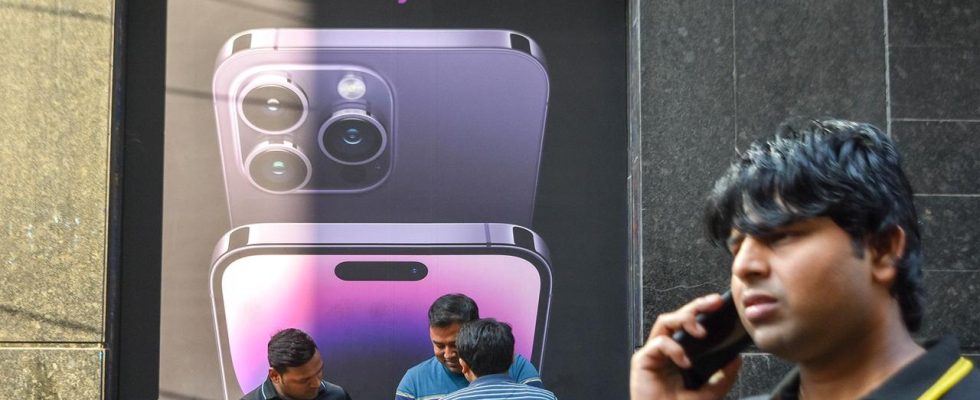background
The technology competition between the USA and China is being fought out with ever tougher bandages. This is forcing the big tech companies to rethink. India benefits from this.
The fierce technology competition between the USA and China has again reached a new level of escalation. Just a few days ago, Beijing drastically tightened its pace when it targeted a US chip manufacturer for the first time: the People’s Republic’s cyber security authority warned against the use of components from the US group Micron because of alleged security risks.
Technology a matter of national security
The step was not unexpected: the USA had previously taken massive action against Chinese technology groups such as Huawei, imposed export restrictions on chip machines, and a nationwide ban on the popular video app TikTok is in the pipeline. In the information age, technology is becoming a central issue of national security.
But can the US and its tech companies seriously decouple from China – a country that is still considered the “factory of the world”? In an interview with the “Financial Times”, Nvidia boss Jensen Huang recently warned that the US chip industry was at risk of being crushed in the dispute between Washington and Beijing. The industry is exposed to the risk of “enormous damage”.
Amazon, Apple and Cisco are drawn to India
The fact is that the more the competition between the USA and China escalates, the greater the pressure on the large US technology companies to become more independent of China. The country of choice is increasingly India. Just last week, the world’s largest online retailer, Amazon, announced that it would invest around 13 billion dollars in expanding its cloud computing division in India by 2030.
It is not the only top-class investment in recent months: US network equipment supplier Cisco Systems announced at the beginning of May that it would start production in India in order to diversify its global supply chain. Apple supplier Foxconn followed in mid-May, wanting to invest half a billion dollars on the subcontinent.
Soon more iPhones “made in India”?
According to the financial news agency Bloomberg, the new facility to be built in south-western Bengaluru will be used for the final assembly of iPhones. The aim is to strengthen iPhone production on the subcontinent and thus diversify the supply chain. Bloomberg’s market analysis department estimates that the country’s share of iPhone assembly could rise to 10 to 15 percent from the current under 5 percent.
Analysts have been complaining about the US technology group’s enormous dependence on China for years. After all, Apple manufactures more than 90 percent of its iPhones in the People’s Republic. No other US technology group has such a China-centric supply chain. Manufacturing problems in the wake of the corona pandemic had recently ruined the important Christmas quarter for the iPhone group – and thus brought new impetus to the dependency debate.
Eli Friedman, an economist at Cornell University, warns that Apple’s China supply chain will not disappear overnight. A complete decoupling from China is simply not realistic for the US group. The US bank JPMorgan predicts that China’s share of Apple’s production will fall from 95 to 75 percent by 2025.
Schaeffler relies on India, Bosch on China
But not only large US technology groups are attracted to India – some German companies have also recognized the value of India as a technology location. For example, the automotive supplier Schaeffler has opened a new competence center for software and electronics in Pune, India.
Bosch is quite different: The automotive supplier is fully committed to the Chinese car market and recently made the second-largest single investment in the company’s history in Suzhou, after the chip factory in Dresden, at almost one billion euros. An investment that certainly carries risks should geopolitical tensions between China and the US intensify.
India is helping finance Putin’s war
However, the location of India is not entirely without risk, as the country sends rather mixed geostrategic signals out into the world. Political differences with the West cannot be ruled out here either. To cite just one example: alongside China, India is one of the largest buyers of Russian oil and gas. “80 percent of Russian oil goes to India or China,” emphasizes market expert Robert Rethfeld from Wellenreiter Invest.
India is thus indirectly financing the Russian war of aggression against Ukraine. So far, the western alliance and above all the USA seem to be ignoring this. But if that changes and measures against India are even considered, India as a production location could suddenly be much more risky than Apple and Co. currently want to imagine.

